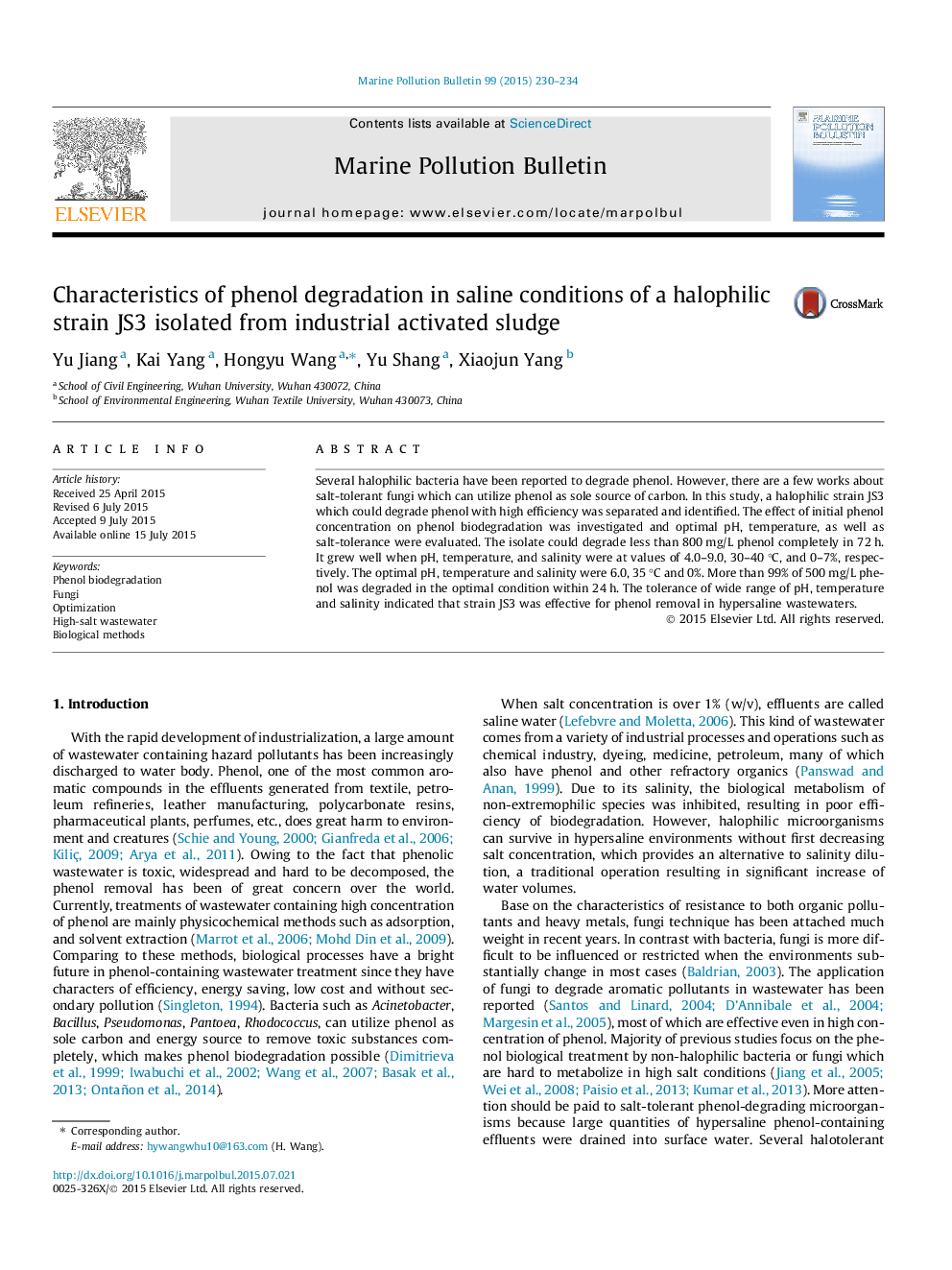| Article ID | Journal | Published Year | Pages | File Type |
|---|---|---|---|---|
| 4476668 | Marine Pollution Bulletin | 2015 | 5 Pages |
•A halophilic phenol-degrading strain JS3 was separated and identified.•JS3 could tolerant wide range of phenol concentration, pH, temperature and salinity.•The strain was effective for phenol removal in hypersaline wastewaters.
Several halophilic bacteria have been reported to degrade phenol. However, there are a few works about salt-tolerant fungi which can utilize phenol as sole source of carbon. In this study, a halophilic strain JS3 which could degrade phenol with high efficiency was separated and identified. The effect of initial phenol concentration on phenol biodegradation was investigated and optimal pH, temperature, as well as salt-tolerance were evaluated. The isolate could degrade less than 800 mg/L phenol completely in 72 h. It grew well when pH, temperature, and salinity were at values of 4.0–9.0, 30–40 °C, and 0–7%, respectively. The optimal pH, temperature and salinity were 6.0, 35 °C and 0%. More than 99% of 500 mg/L phenol was degraded in the optimal condition within 24 h. The tolerance of wide range of pH, temperature and salinity indicated that strain JS3 was effective for phenol removal in hypersaline wastewaters.
